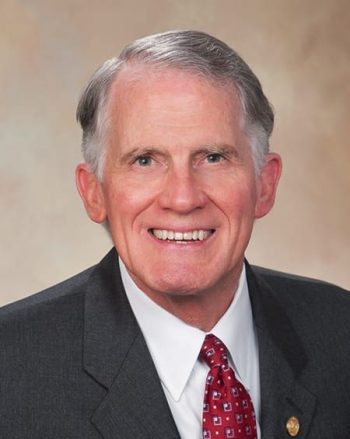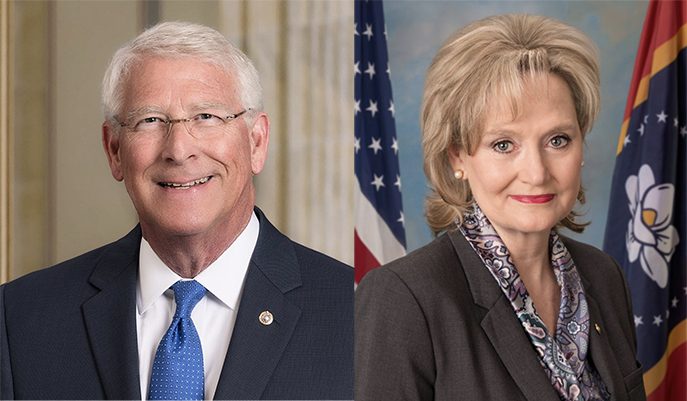
This is the second installment in the Y’all Politics series looking back at the passage of tort reform that occurred 20 years ago in the longest special session in Mississippi history.
In August 2002, former Governor Ronnie Musgrove, a Democrat, called in his trial lawyer friends to tell them over breakfast that the pressure to enact meaningful tort reform was too great and that he would be calling a special legislative session to handle the matter.
What resulted was an 83-day special session, the longest special session in the history of Mississippi, that not only changed the legal community and made the state more business friendly, but it changed the face of politics in Mississippi, the impact of which is still felt today.
RELATED: Part1 – Jackpot Justice +20: Tort reform’s impact on Mississippi
Jere Nash and Andy Taggart chronicled the events leading up to and through that 2002 special session in their book, “Mississippi Politics: The Struggle for Power, 1976-2006.” Both of the authors recently joined Y’all Politics for a discussion 20 years after that Fall that changed Mississippi.
Nash, a Democrat, and Taggart, a Republican, have long been friends, setting aside their political philosophical differences in favor of agreeing that “facts are facts.”
However, as the two told Y’all Politics, in the span of their two books, tort reform was the only topic they could not speak on with one voice as it pertained to the facts and the factual consequences of the legislation. They perceived the events very differently.

“Throughout the book that Andy I wrote, we tried to identify some events that we believe changed the way in which politics is conducted in Mississippi,” Nash said. “In my mind, we identified and talked about three crucial happenings over the 30 some years that we chronicled in the book. The first being the nationalization of the political parties… the role of redistricting, and third was tort reform.”
Tort reform changed the way politics and campaigns are conducted in Mississippi as prior to that 2002 special session, Nash recalled, Democrats and Republicans could raise money from most anyone, but after that special session a “proverbial line in the sand was drawn.” Business and medical groups started giving exclusively to Republicans while trial lawyers were giving only to Democrats, and that trial lawyer money began to dry up following tort reform’s passage.
“It was a very, very big deal because it dramatically effected both Mississippi policy and politics,” Taggart said. “Without any question, if you had to say what had the most dramatic impact on Mississippi policy and politics from the tort reform, civil justice perspective, it would surely be the Musgrove special session.”
Taggart went on to say that looking back, it is hard for people today to fathom that business owners and medical professionals were literally making life-changing career decisions based on what they perceived to be the egregious tort environment in Mississippi prior to tort reform’s passage.

“Young people who might otherwise consider becoming physicians were second guessing that decision. Those who were physicians were determining whether they wanted to stay in the profession, or if they were OBGYNs, for example, whether they might limit their practice and no longer deliver babies. Hospitals were having to make significant professional and administrative judgements, and non-medical professional businesses were literally moving their corporate headquarters both outside the state and to different counties inside the state in order to counteract what they perceived, correctly or not, to be their legal exposure because of the tort environment at the time.”
Taggart said folks who did not live through that period in Mississippi cannot appreciate how that unease negatively impacted the state from a commercial, legal and political perspective.
Upon hearing that assessment from Taggart, Nash chuckled heartily, calling back to the two’s disagreement on the roots of tort reform.
“In order to keep this conversation civil, Andy and I just need to agree to disagree about sort of the legal aspects of tort reform, which is sort of what we admitted in our book, that regardless of sort of an argument about the legal merits of tort reform, we agree on the ramifications of the political consequences of the 2002 and 2003 enactments,” Nash said.
Nash said that for a long time before the 2002 special session, the business community had advocated for tort reform, but it was not until the doctors, specifically, began to get involved, jumping into it in a very serious way, did tort reform actually move forward.
“It was when the health care community, generally, and the doctors, specifically, jumped on the issue that it began to show movement at the Capitol,” Nash said.
Taggart and Nash also pointed out that leading up the 2002 special session, judicial elections, while often spirited across the state, helped lay the groundwork for tort reform’s passage. Campaigns for state Supreme Court and county judicial seats began to see stark philosophical “cut line contrasts.”
The result of the 2002 tort reform package, from a political perspective, was that Democrats would go on to lose more campaigns in 2003’s state, legislative and county races than in any election cycle since Reconstruction.
Nash said the nationalization of the political parties – tying Democrats and Republicans to their national counterparts and platforms – and tort reform’s passage, whereby setting clear campaign fundraising lines between the two parties, are in concert.
“Democratic campaigns just became very hard to finance and be competitive as a result of tort reform,” Nash said. “Tort reform was sort of a Mississippi specific deal, and it hastened the growth of Republican victories in statewide and in legislative campaigns, but the nationalization of the parties certainly contributed to that, so those two things went hand in hand, I think.”
Taggart fully agreed with his co-author’s take, saying that the tort reform fight may have accelerated what happened in Mississippi politics, but it was definitely happening on the national scene already.
“The drift from Democrat to Republican was going to happen because of the nationalization of the parties. Tort reform accelerated that growth,” Nash tagged on.
As to whether or not former Governor Musgrove made a misstep in calling the 2002 special session that some Democrats even today look back on as the “beginning of the end” for the Mississippi Democratic Party, Nash said, chuckling, “Well, of course, it was wrong.”
Taggart said the move by Musgrove defined logic.
“I truly don’t understand what he was thinking at the time,” Taggart said. “It sort of defies logical thought in terms of whatever he thought his political future would be, whatever his re-election hopes were, whatever he intended his legacy to be. It’s just hard to figure out how this fit in.”
Nash recounted that Musgrove said at the time that he did not think about the politics but rather about the public policy.
“For him [Musgrove], he bought into this health care scare, doctor scare that Andy articulated earlier, and thought it was important to push but you shouldn’t just mention Musgrove’s willingness to undercut the support he had among trial lawyers. Again, in his defense, he had political support from a whole lot of people who supported tort reform, not just trial lawyers and there were a bunch of Democrats in the Legislature who supported tort reform who had been backed by trial lawyers. So, the betrayal is not just Governor Musgrove’s. There were a lot of people who went down this road during that special session which is obviously why it took so long.”
Nash said prior to 2002, all of those Democrats from Musgrove on down the ticket had received contributions from trial lawyers as well as businesses, doctors, hospitals and the like.
“A lot of Democrats [then] were between a rock and a hard place having to choose, and that’s why tort reform was so pivotal,” Nash said. “It literally did draw a line in the sand.” People had to choose. You had to choose I’m for it or against it. Period. I don’t think anybody during the 2002 special session thought about the larger political consequences of what enactment of tort reform would mean for Democrats and Republicans down the road.”
Taggart followed Nash’s thoughts by saying with lawmakers having a hospital or doctor, even nervous business owners, back home in their districts, much of what transpired was self-preservation as those legislators on both sides of the aisle had to answer to their constituents.
The broader political consequences, Taggart and Nash agree, are what Mississippi now sees in the current political environment. In 2019, Republicans won all eight statewide offices for the first time in over 100 years while securing supermajorities in both chambers of the Legislature and majorities on both regional state commissions.
The two authors also do not see an issue or policy initiative on the horizon today that could reshuffle the deck as it did for Republicans and help give Democrats a better opportunity at the ballot box as tort reform did following 2002.
“It’s hard for me to think of anything that could have any political legs that could have the same effect [as tort reform],” Taggart said.
When asked if he knew of an issue, Nash said, “No.”
The two agree that when the two parties were successful in defining the other in terms of their national counterparts, with Republicans meaning conservative and Democrats meaning liberal, it polarized Mississippi voters to the right.
Taggart says the challenge for Republicans in Mississippi now is to take their message to black voters who are also conservative as it continues to grow the party’s influence.
“For the future and growth of Mississippi Republican politics, and the cultural politics of our state, the question is, can Mississippi Republicans successfully take their message to African-Americans in our state who are also culturally conservative, that being a Republican doesn’t make you disloyal to the fact that you also care about other issues that are important to African-Americans in our state,” Taggart concluded.
###
You can find the Second Edition of Nash and Taggart’s book for purchase on Amazon here.











